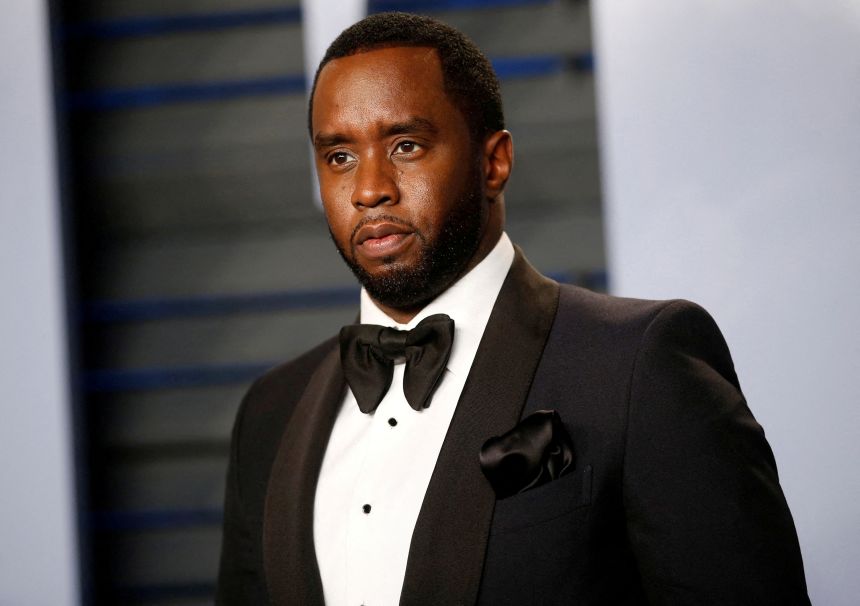
New York, October 3, 2025 — In a dramatic courtroom conclusion to a months-long trial, music mogul Sean “Diddy” Combs was sentenced today to 50 months in federal prison after a Manhattan jury found him guilty on two counts of transporting individuals for prostitution. The sentence was handed down by U.S. District Judge Arun Subramanian, who imposed the prison term along with a US$500,000 fine and five years of supervised release.
Combs, 55, will receive credit for the 13 months he has already spent in detention at the Metropolitan Detention Center in Brooklyn, meaning he is expected to serve approximately three more years behind bars.
Combs faced a sprawling indictment that included racketeering conspiracy, sex trafficking, and transportation for prostitution, alleging he arranged drug-fueled sexual encounters known as “freak-offs” involving his ex-girlfriends and hired sex workers.
In July 2025, after a three-week trial, the jury acquitted him of the racketeering and sex trafficking charges—but convicted him on the two counts of transporting individuals across state lines for prostitution, violations of the Mann Act.
Though prosecutors had pursued harsher penalties, citing a multi-decade pattern of abuse, threats, and intimidation, the court’s ruling on the lesser charges paved the way for a more measured, but still substantial, sentence.
Emotions ran high in the courtroom as Combs addressed the court before sentencing. He apologized to his victims, his children, and to survivors of domestic violence, describing his past conduct as “disgusting, shameful and sick.”
In tears, he said: “I’ve been humbled and broken to my core … I hate myself right now”.
Judge Subramanian acknowledged Combs’ artistic achievements and charitable works but stressed that the evidence of abuse and coercion was “massive.” He directly addressed the two women who testified—Casandra “Cassie” Ventura and a woman referred to as “Jane”—telling them, “We heard you”.
The judge rejected the defense’s 14-month sentence request and opposed a downward departure from sentencing guidelines, saying leniency would undercut accountability in sexual abuse cases.
Combs’ defense team immediately announced their intent to appeal, alleging the judge acted as a “13th juror” by second-guessing the jury’s acquittals on more serious counts.
One juror quoted in media statements expressed surprise at the sentence’s relative lightness, saying, “I think he got off easy.”
Cassie Ventura’s legal representatives responded by asserting that though nothing can erase the trauma she endured, the sentence represents meaningful recognition of the harm inflicted.
Legal observers note that the conviction and sentence could send ripples through how the U.S. handles cases involving celebrities accused of sexual misconduct. Some see this as an assertion that fame will not provide immunity. Others question whether the punishment is stringent enough.
Sean John Combs—known by stage names including Puff Daddy, P. Diddy, and Diddy—is a music producer, rapper, entrepreneur, and media figure who has long occupied a prominent place in American popular culture.
Over recent years, however, his reputation has come under intense scrutiny amid multiple civil suits and allegations of sexual misconduct involving former partners and associates.
In September 2024, federal agents executed raids on his properties in New York, Los Angeles, and Miami. Later that month, he was arrested and charged in the Southern District of New York with racketeering, sex trafficking, and prostitution offenses.
Notably, Combs had been denied bail several times during pretrial motions, with courts concluding that he had not shown he posed no risk and that the seriousness of the charges warranted continued detention.
Combs will begin serving his sentence immediately. With credit for time served, his remaining term extends for roughly 36 more months.
Upon release, he faces five years of supervised release, during which he must comply with strict conditions.
The appeal process is likely to draw out legal challenges around sentencing law, the interplay of jury verdicts and judicial discretion, and how punishment is calibrated in cases that hinge on allegations of coercion and abuse.
Beyond the criminal case, Combs remains vulnerable to numerous civil lawsuits related to sexual assault and abuse. Legal claimants have accused him of misconduct spanning decades, and many of those suits are still unresolved.
Media reactions, public debates, and commentary from survivors’ advocates will likely intensify as the case becomes a touchstone in discussions about accountability, gender dynamics, power, and celebrity.
Sean “Diddy” Combs’ sentencing marks a major turning point in a saga that has captivated public attention. Once celebrated as a hip-hop mogul, he now faces years behind bars for conduct that prosecutors and victims described as exploitative and abusive.
While some view the 50-month sentence as a victory for justice, others question whether it is enough. Regardless, the decision sends a signal that—even for high-profile figures—accountability can no longer be postponed.





